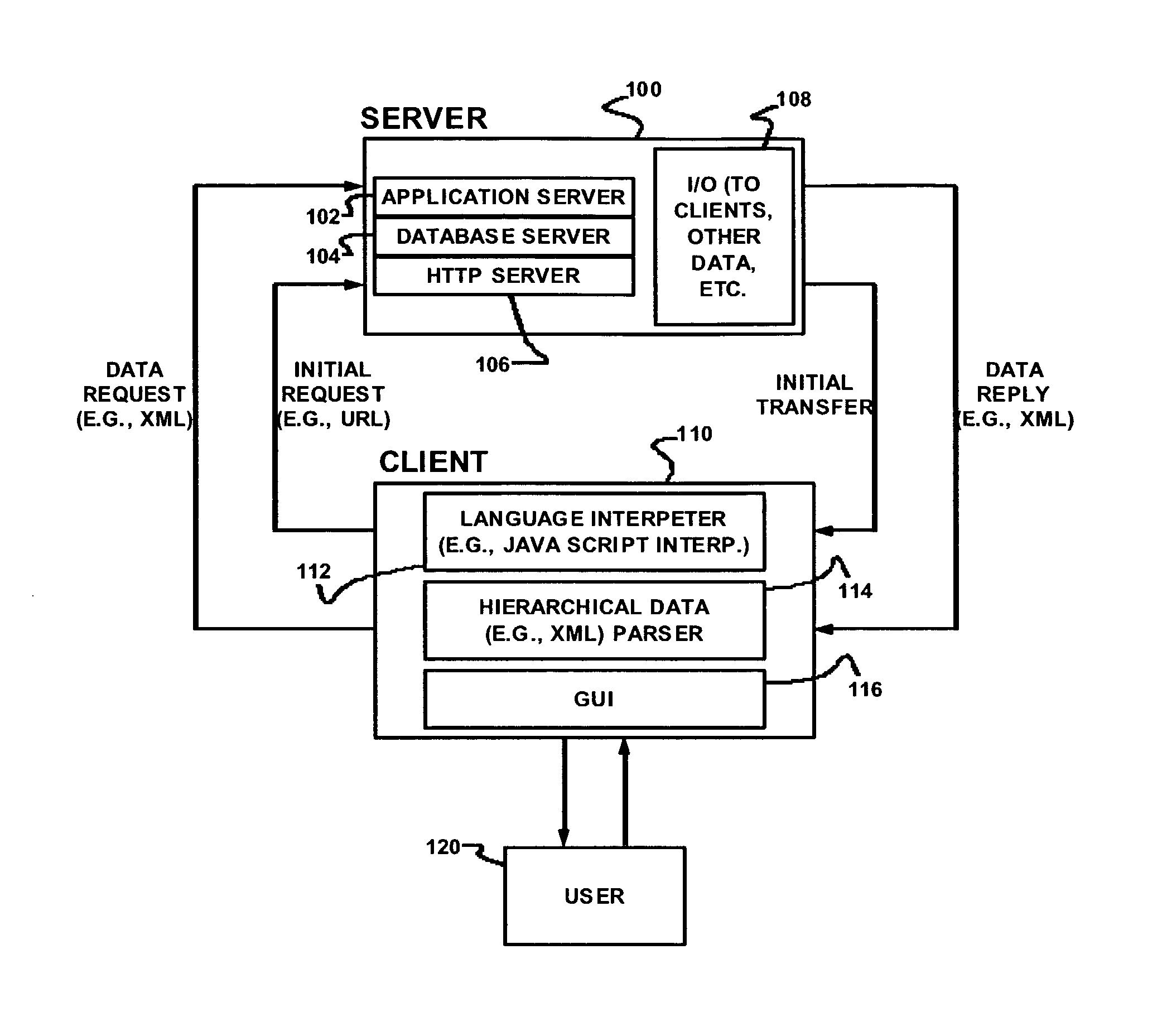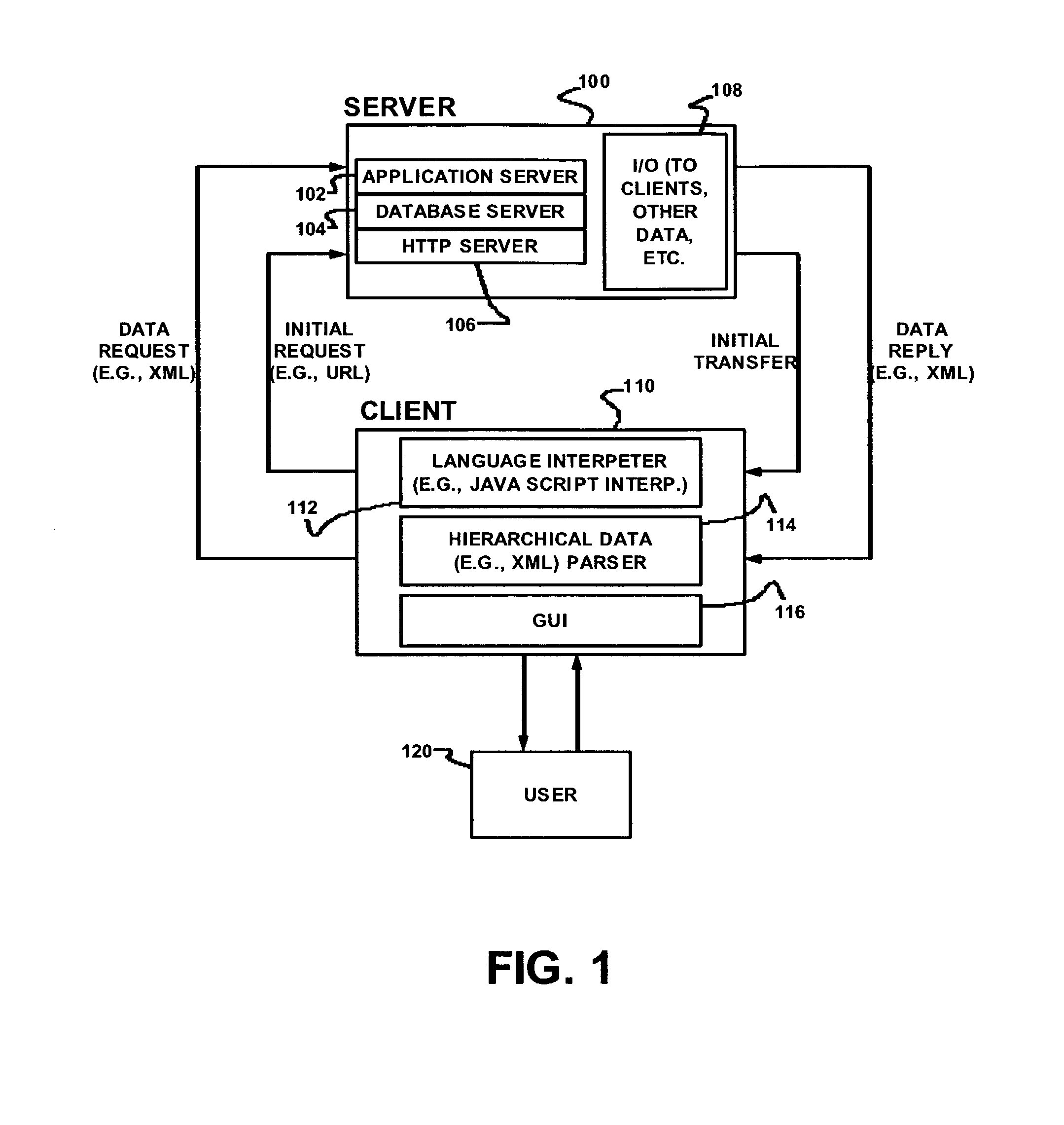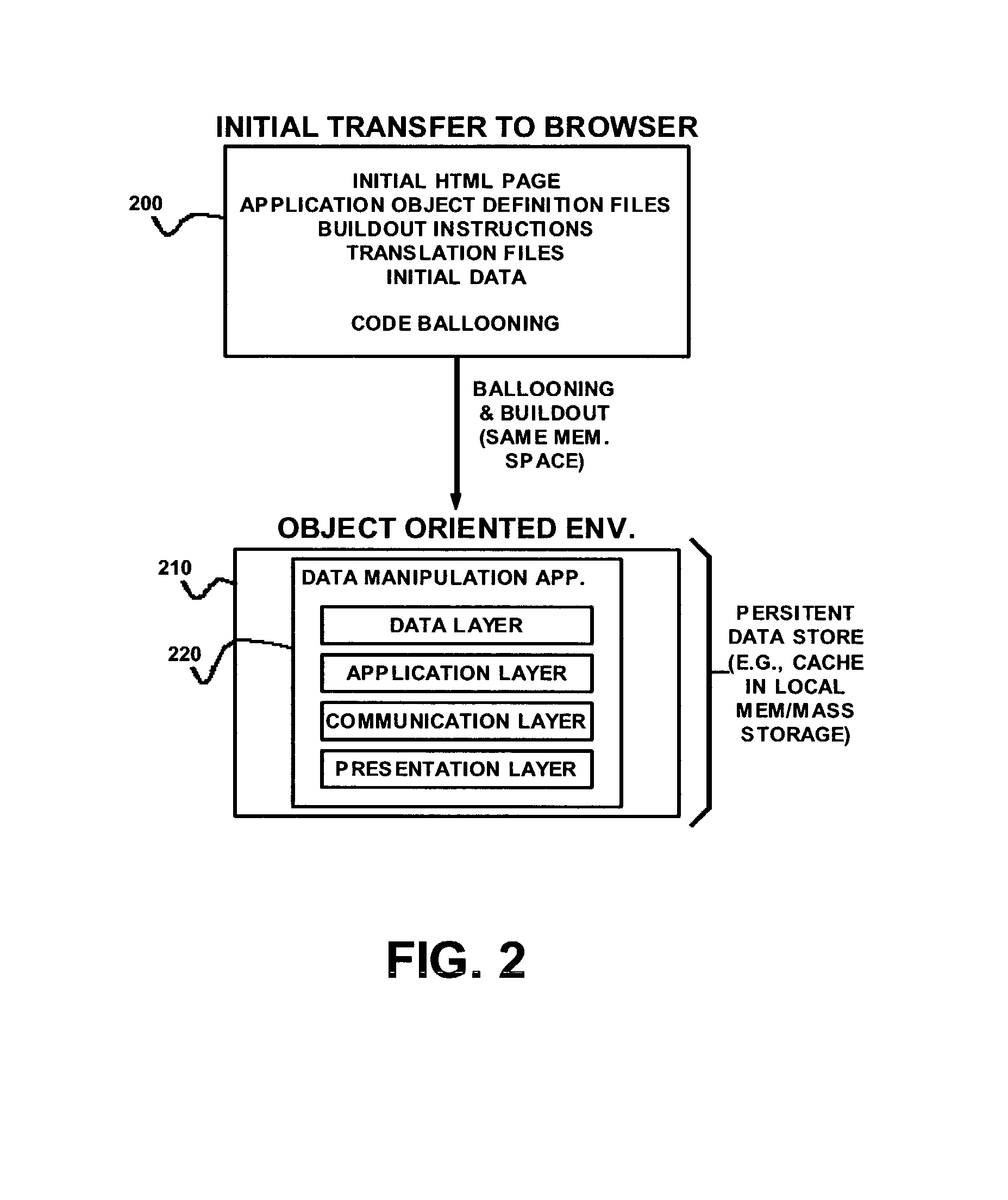[0009]A method of delivering data and formatting information includes (1) delivering
application object definition files from a server to a client, (2) generating object instances at a client using
JavaScript or another browser-
interpreted language, for objects relating to
data modeling and presentation, and (3) presenting data using those objects at the client, using a
web browser without a separate runtime environment or application plug-in, and maintaining substantial state at the web browser regarding the data itself and the format for its presentation. In a preferred embodiment, the web browser need not include more than a script language
interpreter, a parser for
XML or other hierarchical tagged data, and an element for communication with the server. In a preferred embodiment, the web browser also includes an element for rendering and presentation of information to a user. In a preferred embodiment,
application object definition files are designed to provide object properties consistent with a full object-oriented language, including for example multiple levels of hierarchical inheritance for object properties. In a preferred embodiment, the client (using a method herein sometimes called “code ballooning”) generates object definitions and individual object instantiations, with the effect that a very large amount of DHTML, or another markup or presentation definition language for use with the application, can be generated from relatively
small aggregate size of
application object definition files communicated from the server to the client.
[0010]In an aspect of the invention, an embodiment of the invention manages
XML or other hierarchical tagged data in a persistent
data store, with the effect of enabling
asynchronous communication of data between the server and the client, and with the effect of enabling asynchronous presentation updates at the client without server intervention. This has the effect of allowing the web client to use tagged
data objects maintained in the local web browser memory or cache as a query-able
database. An embodiment of the invention includes a
communication channel between the persistent
data store for hierarchical tagged data and the asynchronous presentation updates, with the effect of enabling dynamic partial update of data, or its presentation format, to the user.
[0011]An embodiment of the invention also includes a DMA (data manipulation application) DOM (
document object model), or other
object model for a presentation to a user at the web client, said DMA DOM being separate from a DOM used by the web browser, with the effect that dynamic updates of data and presentation format can be disposed for a later time when the user requests presentation of that portion of the document, and with the effect that the client is capable of implementing a model / view / control model of the presentation and manipulation of data, without using the server to maintain its own model / view or control for that presentation and manipulation of data.
[0012]In an aspect of the invention, the set of
JavaScript or other application objects provides a substantially rich language, with the effect that the user can use and extend the functionality of the client without requiring a separate runtime environment or application plug-in, or other functionality not already part of the web browser. The user's ability to use and extend the functionality of the client might include one or more of (1) generating GUI objects such as but not limited to windows, tablets, charts, trees, and other GUI elements otherwise not available in the browser's APIs, and handles for manipulating them, (2) generating communication objects, such as for
asynchronous communication with one or more server devices, such as for example arrays of invisible I-frames and other objects for managing client / server relationships, and (3) generating
data objects, such as for example pointers to items in a
data cache, objects for managing
garbage collection, and other objects for managing the browser cache.
[0014]In an aspect of the invention, the set of JavaScript or other application objects can be serialized into
XML or another tagged
data structure, and de-serialized from that tagged
data structure back into application objects, with the effect that the GUI for the data manipulation application can be defined by the XML or other code for the tagged
data structure. In a preferred embodiment, this has the effect that (1) all or part of the data manipulation application, and its current state, can be transferred to another client for use by another user, (2) all or part of the data manipulation application, and its current state, can be maintained in storage and retrieved for later use, by the same or a different user, (3) logical parts of the data manipulation application, such as for example defined program modules, can be maintained in storage and retrieved for later use, such as during development of the data manipulation application or during runtime execution of the data manipulation application, with the effect of adding functionality or application modules to the application when needed or convenient.
 Login to View More
Login to View More  Login to View More
Login to View More 


